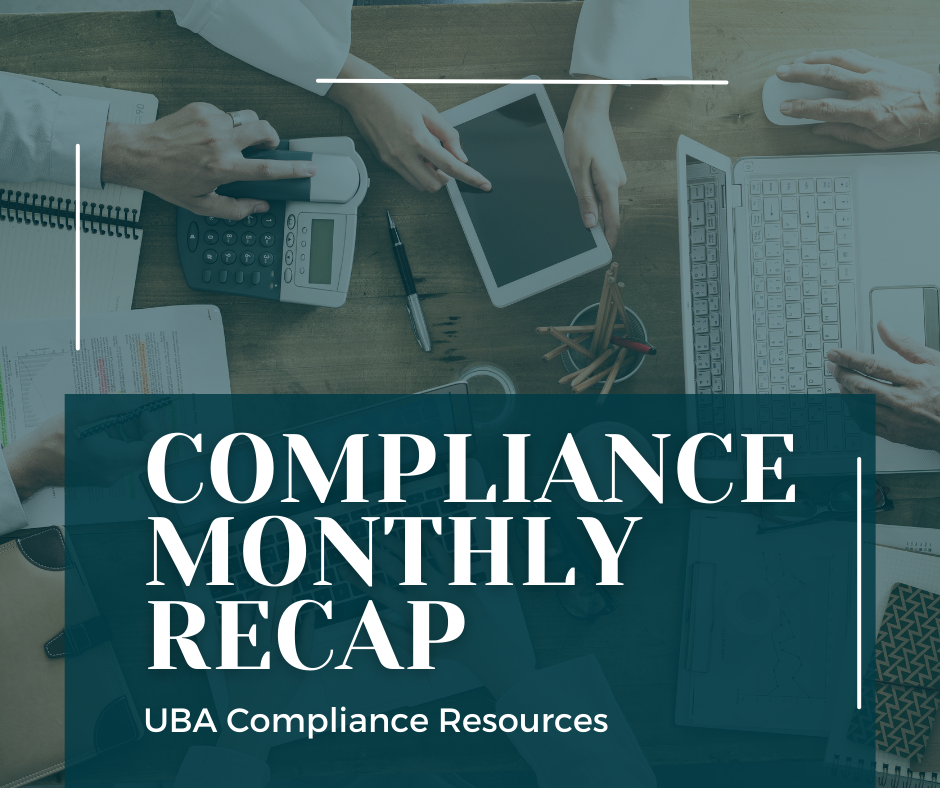Compliance
-

Final Rules Under the Mental Health Parity and Addiction Equity Act
On Sept. 9, 2024, the U.S. Departments of Health and Human Services (HHS), Labor (DOL), and the Treasury (IRS) (collectively, the Departments) released new final rules implementing the Mental Health Parity and Addiction Equity Act (MHPAEA). The final rule updates the way the Departments determine whether health plans treat mental health and substance use disorder…
-

The Pay or Play Percentage Increase for 2025
The Affordable Care Act (ACA) requires large employers to offer affordable health insurance coverage to their full-time employees or face a penalty known as the “Pay or Play” tax. This tax is based on the employer’s average monthly wage (AMW) and the number of full-time employees. The affordability rate for employer-sponsored health coverage will increase from 8.39%…
-

Compliance Recap | Aug. 2024
FEDERAL COURT BLOCKS FTC NON-COMPETE BAN NATIONWIDE: IMPORTANT INSIGHTS FOR EMPLOYERS On August 20, 2024, the U.S. District Court for the Northern District of Texas delivered a crucial ruling, effectively halting the Federal Trade Commission’s (FTC) Rule prohibiting most non-compete agreements. The Rule, which was set to go into effect on September 4, 2024, was…
-

Medical Loss Ratio (MLR) Rebates: A Timely Reminder
The Affordable Care Act (ACA) introduced the Medical Loss Ratio (MLR) to ensure that health insurance companies spend a significant portion of premiums on medical care and quality improvement activities rather than administrative costs and profits. When insurers fail to meet the MLR threshold, they are required to issue rebates to plan sponsors. Understanding MLR…
-

Compliance Recap July 2024
FORM 5500 FILING FOR HEALTH AND WELFARE PLANS The Form 5500 series is a component of the Employee Retirement Income Security Act’s (ERISA) reporting and disclosure framework. The Form is used to report information on the qualification of the plan, its financial condition, investments, and its operations. It also guarantees that participants, beneficiaries, and regulators have access…
-

PCORI Fee Filing Deadline
The Patient-Centered Outcomes Research Trust Fund fee, often referred to as the PCORI fee, can be a source of confusion for employers offering health insurance plans. This article aims to simplify what the PCORI fee is, why it exists, and how it impacts your business. What is the PCORI Fee? The PCORI fee is an…
-

Compliance Recap May 2024
PREPARE NOW TO PAY THE PCORI FEE The Patient-Centered Outcomes Research Institute (PCORI) fee funds research that evaluates and compares health outcomes, clinical effectiveness, and the risks and benefits of medical treatments and services. Effective through 2029, the IRS treats this fee like an excise tax, applied to all covered lives, including employees, retirees, spouses,…
-

Benefits Check-up: 6 Compliance Issues Affecting Your Clients’ Health
A health plan is more than a product or service; it’s a relationship. All productive and healthy relationships—especially in the benefits space—rely on trust. When an employer extends trust in a broker or insurance carrier to purchase something as critical as healthcare—for people as critical as their workers and families—we’re obligated to raise all factors…
-

Compliance Recap February 2024
In early February, a federal class action lawsuit was filed against Johnson & Johnson (JNJ) and its plan fiduciaries, alleging overpayment for prescription drugs within its prescription drug plan. The complaint alleges that under the Employee Retirement Income Security Act of 1974 (ERISA), JNJ’s plan fiduciaries are obligated to diligently compare service providers, seek cost-effective options, and…
-

Benefits Buzz February 2024
ACA Reporting Deadlines Are Approaching Employers subject to Affordable Care Act (ACA) reporting under Internal Revenue Code Sections 6055 or 6056 should prepare to comply with upcoming reporting deadlines. For the 2023 calendar year, covered employers must: Furnish statements to individuals by March 1, 2024 (an alternative method of furnishing statements to covered individuals is…






